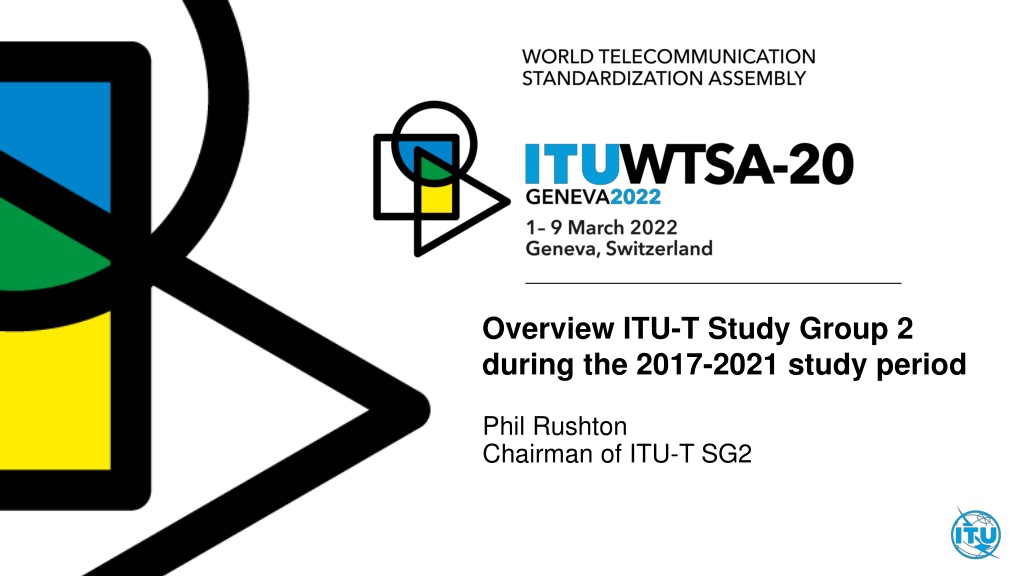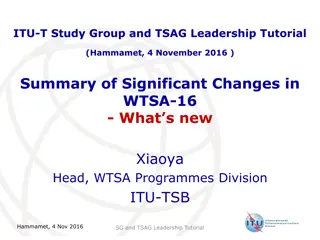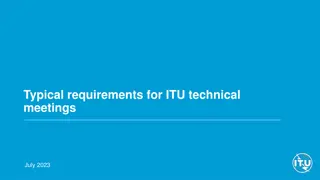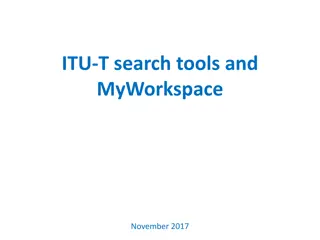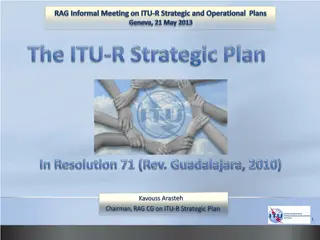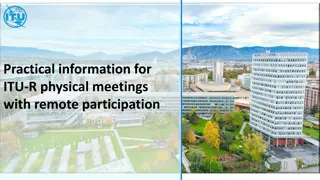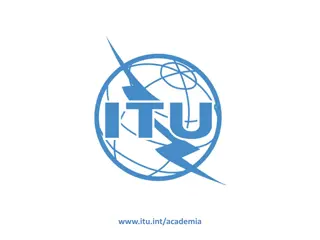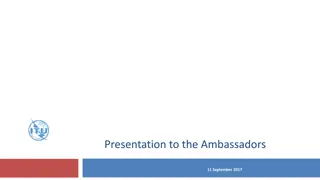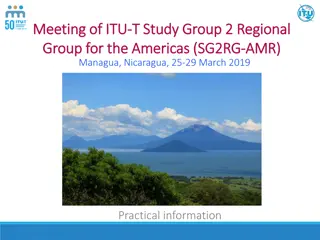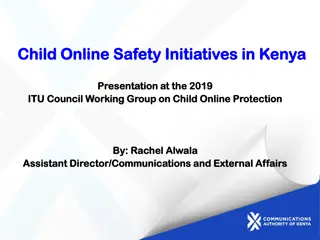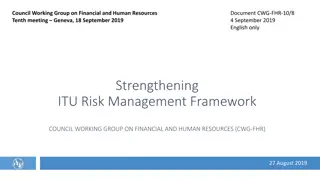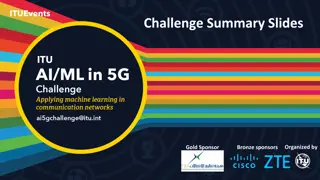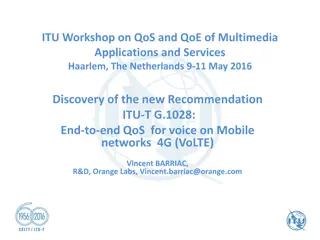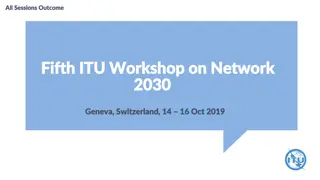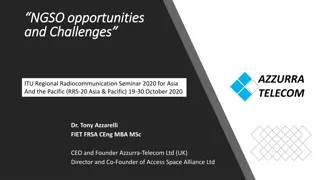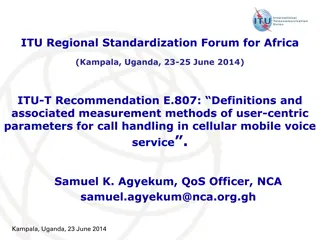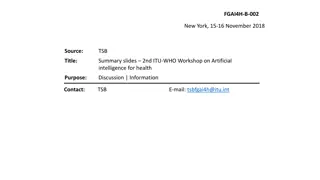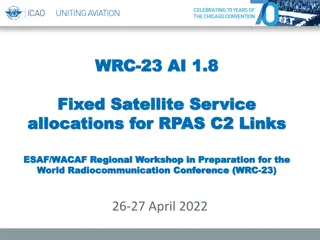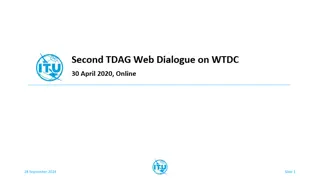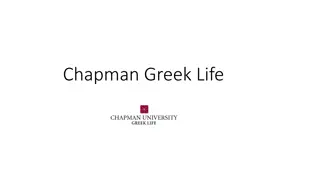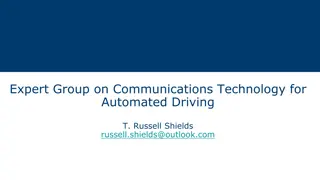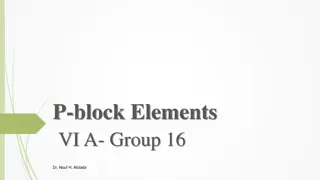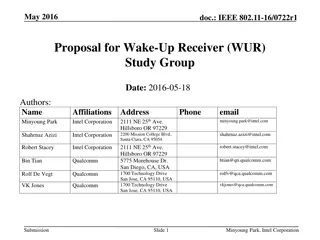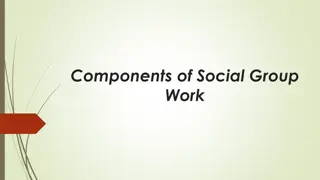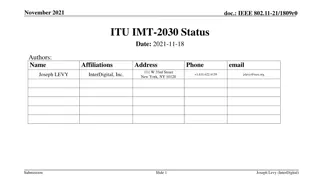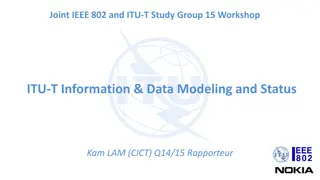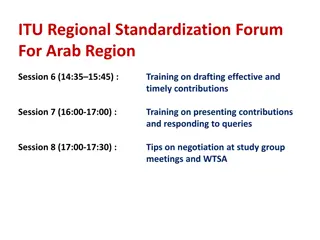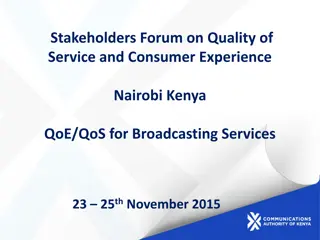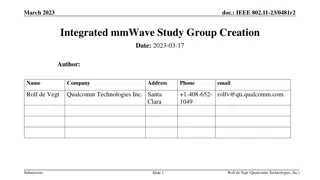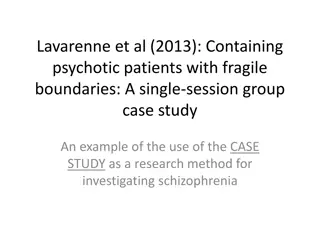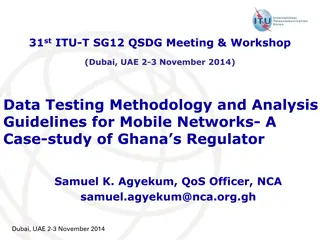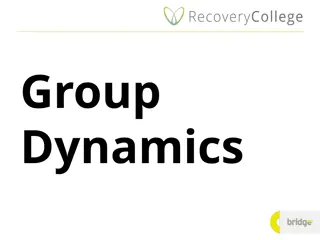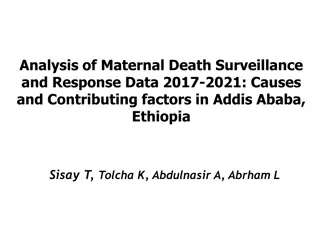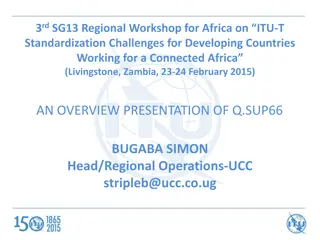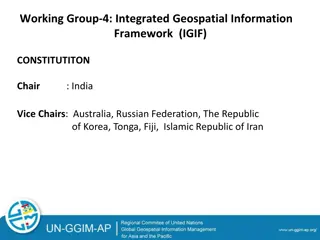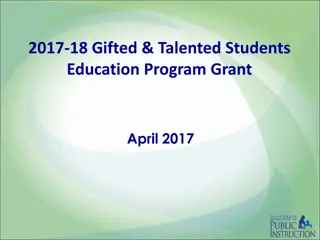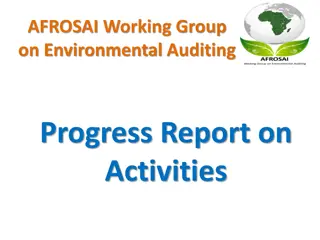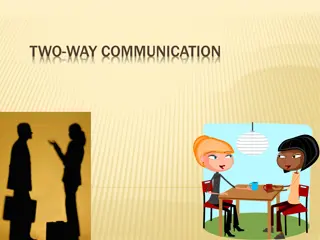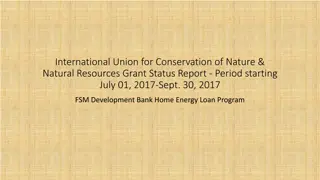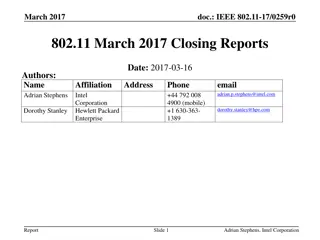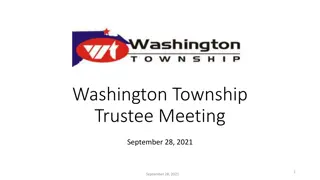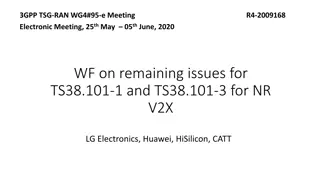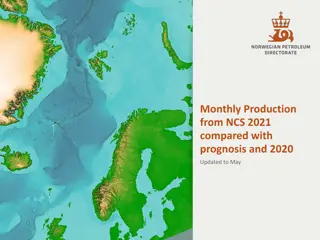Overview of ITU-T Study Group 2 Activities 2017-2021
ITU-T Study Group 2, led by Phil Rushton, focused on key areas such as telecommunications operations, combatting misuse, and enhancing network management. Deliverables included updates on responses to misuse reports and international calling guidelines. The study period involved numerous meetings, activities, and assignments related to numbering resources. Future work (2022-2024) emphasizes M2M/IoT, 5G network aspects, and AI in network management. Diverse leadership from various countries contributed to the group's success.
Download Presentation

Please find below an Image/Link to download the presentation.
The content on the website is provided AS IS for your information and personal use only. It may not be sold, licensed, or shared on other websites without obtaining consent from the author. Download presentation by click this link. If you encounter any issues during the download, it is possible that the publisher has removed the file from their server.
E N D
Presentation Transcript
Overview ITU-T Study Group 2 during the 2017-2021 study period Phil Rushton Chairman of ITU-T SG2 www.itu.int/wtsa2020
Areas of work, 2017-2021 Operations: provision of services that meet all stakeholder needs. Numbering Naming Addressing and Identification for today and the future, including advice to the TSB Director on INRs (WTSA Res.20). Countering & combatting NNAI misuse/Telecom finance & fraud management (WTSA Res.61). Telecommunication management, and network and service operations. www.itu.int/wtsa2020
Key deliverables, 2017-2021 ITU-T E.156 (revised) enhancing the speed and effectiveness of responses to misuse reports (WTSA Res.61). ITU-T E.157 (revised) updating guidance for international calling party number delivery across national boundaries (WTSA Res.65). ITU-T E.212 updates for private networks, trials and ROIOs. M- and Q-series Recommendations on smart/REST-based network management. New Supplements on number portability, criteria for E.164/E.212 assignments for M2M/IoT, and disaster relief systems. www.itu.int/wtsa2020
Study period in numbers, 2017-2021 Groups/activities: 10 SG2 meetings / e-plenaries 9 regional group meetings 71 interim activities New focus group on AI for Natural Disaster Management Outputs: 34 normative texts, 7 non-normative texts International Numbering Resources assignments: 35 E.212 MCC/MNCs, 27 E.164 CC/ICs, 4 E.218 IINs, 2 E.218 MNCs 55 new SG2 Associates www.itu.int/wtsa2020
Future focus of work, 2022-2024 Future of Naming Numbering Addressing and Identification, including M2M/IoT and network management/operational aspects of IMT-2020/5G (WTSA Res.20). Increasing demand for directly assigned International Numbering Resources. OTT services and alternative calling procedures (WTSA Res.29). Countering and combatting NNAI misuse (WTSA Res.61). Smart/AI network management and operational aspects. www.itu.int/wtsa2020
SG2 leadership, 2017-2021 SG2: Phil Rushton, UK WP1/2: Einar Bohlin, US (Dmitry Cherkesov, Russian Federation) Q1/2: Philippe Fouquart, France (Ena Dekanic, US) Q2/2: Yana Yankova, Belgium (Saif Bin Ghelaita, UAE) Q3/2: Hossam Sakar, Egypt (Yasmina Alaa, Egypt) WP2/2: Zhili Wang, China (Yanchuan Wang, China) Q5/2: Zhao Ping, China (Dmitry Cherkesov, Russian Federation) Q6/2: Yanchuan Wang, China (Francis Olivier Hubahiro, Burundi) Q7/2: Zhili Wang, China Regional groups: SG2RG-AMR: Edgardo Guillermo Clemente, Argentina SG2RG-ARB: Saif Bin Ghelaita, UAE SG2RG-AFR: Susan Nakanwagi, Uganda
SG2 lead study group roles, 2017-2021 Lead study group for numbering, naming, addressing, identification and routing Lead study group for service definition Lead study group on telecommunications for disaster relief/early warning, network resilience and recovery Lead study group on telecommunication management
Focus Group on AI for Natural Disaster Management (FG-AI4NDM) Explores mitigation, preparedness and response for natural disasters in terms of: data collection, monitoring, and handling; AI-based algorithms for reconstructing, detecting, and forecasting disaster events; and effective communication during disasters. Work is being conducted in collaboration with WMO and UNEP
